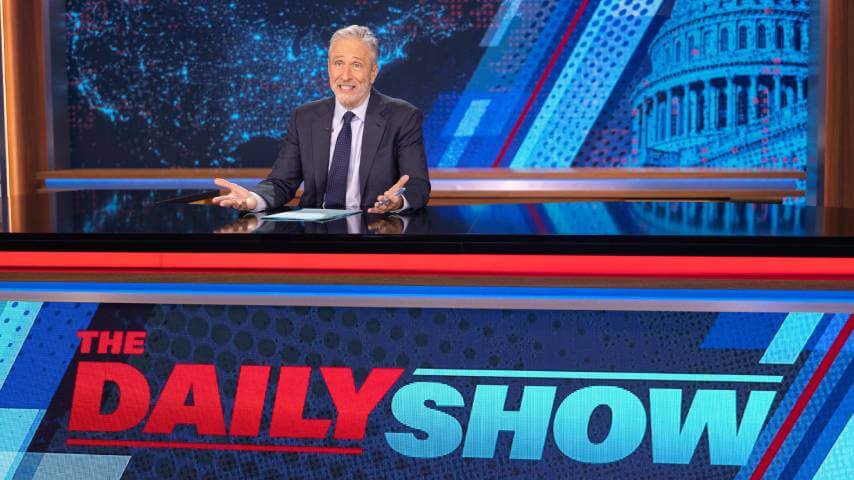Jon Stewart disentangles the ideological mess of America’s next top terrorists
On tonight's Daily Show, Stewart looks at the ideological “gag reflex” of making sure a terrorist attack confirms certain biases.
Photo courtesy of Comedy Central
It was a boring January 6, considering that only four years ago, the current President-elect was fanning the flames of insurrection on his way to the White House again. Anyway, Vice President Kamala Harris certified the election today, and Democrats patted themselves on the back for not staging a riot over it. But, on tonight’s Daily Show, Jon Stewart looked at the terrifying week leading up to this great moment in political theater.
If you’re one of those lucky low-information voters (and if so, why are you reading this post? Don’t you know we’ve got an incredible new Inventory that features Matinee and Body Snatchers?), you might not have heard that there were two terrorist attacks last week, one in New Orleans and another in Las Vegas. In Stewart’s estimation, the coverage of said events was not great. In the hours following the attack, newscasters and law enforcement officials, who seemingly have a responsibility to the American people, filled time by offering false narratives and information either because they didn’t want to admit they didn’t know yet or because they wanted to confirm their biases. Yet, these attacks don’t fit easily into any one box. As our intrepid Daily Show host noted, these were complicated individuals, and the nuance of their lives turned the real-time “gag reflex” of labeling them conservative or liberal into word vomit. Both New Orleans terrorist Shamsud-Din Jabbar and Cybertruck suicide bomber Matthew Livelsberger were American-born Army veterans, and those truths make it challenging to turn attacks by homegrown soldiers into calls for closed borders. These aren’t sleeper cell agents; they’re nap-loving realtors.
“These attacks are really frightening,” Stewart said. “Add to this the feeling of societal tenuousness that we’ve been ingesting since, I’m going to go with, the creation of Facebook. More frightening is that we can’t place these attackers into the normal neat boxes of disturbed, bullied loners. Not only do they not fit into neat ideological packages, they almost seem uncomfortably normal.”
 Keep scrolling for more great stories.
Keep scrolling for more great stories.
